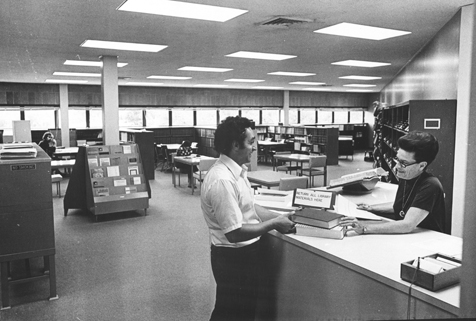
Faculty Research 1970 - 1979
Lack of correlation between in vivo rejection of syngeneic fibrosarcomas and in vitro non-specific macrophage cytotoxicity.
Document Type
Article
Publication Date
1978
Keywords
Cytotoxicity-Immunologic, Fibrosarcoma: im, Graft-Rejection, Immunization-Passive, Macrophages: im, Mice, Neoplasm-Transplantation, Sarcoma-Experimental: im, T-Lymphocytes: im, Transplantation-Isogeneic
First Page
583
Last Page
590
JAX Source
Br-J-Cancer. 1978 Nov; 38(5):583-90.
Abstract
Two transplantable, highly immunogenic syngeneic C57BL fibrosarcomas, FS1 and FS6, were shown to have tumour-specific rejection antigens, as shown by excision of the primary tumours and i.p. or i.m. injection of graded doses of the specific and unrelated tumour cells. I.p. challenge with tumour cells induced a large and relatively long-lasting increase in numbers of peritoneal leucocytes. Macrophage monolayers prepared from such exudates were, in general, non-specifically cytotoxic, though occasional specific cytotoxicity was detected. T lymphocytes isolated from exudates were shown to kill in a specific manner. When immunized mice were challenged with the specific tumour cells to elicit large numbers of peritoneal cytotoxic cells, and with graded doses of the non-cross-reacting tumour cells at the same time or at various times thereafter, growth of the non-related tumours occurred in all cases and only the specific tumour was rejected. Moreover, Winn tests, in which the inflammatory cells were mixed with unrelated tumour cells and implanted i.m., did not delay tumour growth. The relevance of these findings to the role of macrophages and lymphocytes in syngeneic tumour rejection is discussed.
Recommended Citation
Evans R,
Booth CG,
Spencer F.
Lack of correlation between in vivo rejection of syngeneic fibrosarcomas and in vitro non-specific macrophage cytotoxicity. Br-J-Cancer. 1978 Nov; 38(5):583-90.

